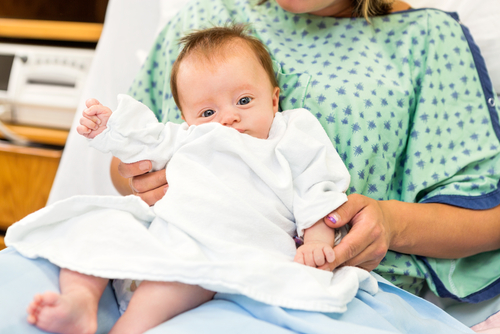When rheumatoid arthritis (RA) is diagnosed in women of child-bearing age, it can compromise fertility and prevent conception, with several factors contributing to the prolonged time to pregnancy (TTP) and fewer children in RA patients. In a recent study, a research team in Rotterdam, The Netherlands, investigated the causes underlying subfertility in RA women including disease activity and anti-rheumatic medication. They reported their conclusions in a study entitled “Fertility in Women With Rheumatoid Arthritis,” published in the journal Annals of the Rheumatic Diseases.
The team studied 245 RA women recruited between 2002 and 2008 according to the 1987 revised criteria of the American College of Rheumatology (ACR) as part of a large prospective cohort study in the Netherlands on Pregnancy-induced Amelioration of Rheumatoid Arthritis, known as the PARA study. Selected patients were actively trying to conceive or already pregnant. Of these women, 84% conceived and 31% had a TTP longer than 12 months and were therefore considered subfertile. In addition, pregnant RA women had a median TTP of 6 months compared to a TTP of 3 months in 50% of the general Western European population. The 42% of RA women considered subfertile also included older women and patients with a higher disease activity score (DAS28 calculated using the 28-joint Disease Activity Score).
A higher nulliparty, i.e., a woman who has never had a child, was also observed in RA women (58% versus 47% in the general dutch population), which could be considered an important factor since a previous pregnancy increases the chance of a subsequent pregnancy in subfertile couples. Researchers also concluded that the pre-conceptional use of non-steroidal anti-inflammatory drugs (NSAIDs) and prednisone (daily dose >7.5 mg) led to significantly longer TTP. In contrast, smoking, disease duration, past methotrexate use, and preconception sulfasalazine use did not affect TTP in the population under study.
These data may help RA women plan a successful pregnancy. “The results of our study also have implications for patients with conditions other than RA. When patients wish to conceive and are using high daily dosages of prednisone, or NSAIDs on a regular basis, their treatment should be critically evaluated. Similarly in patients with other inflammatory auto-immune diseases, disease activity may impair fertility and should be suppressed whenever possible,” the authors concluded in their report.


